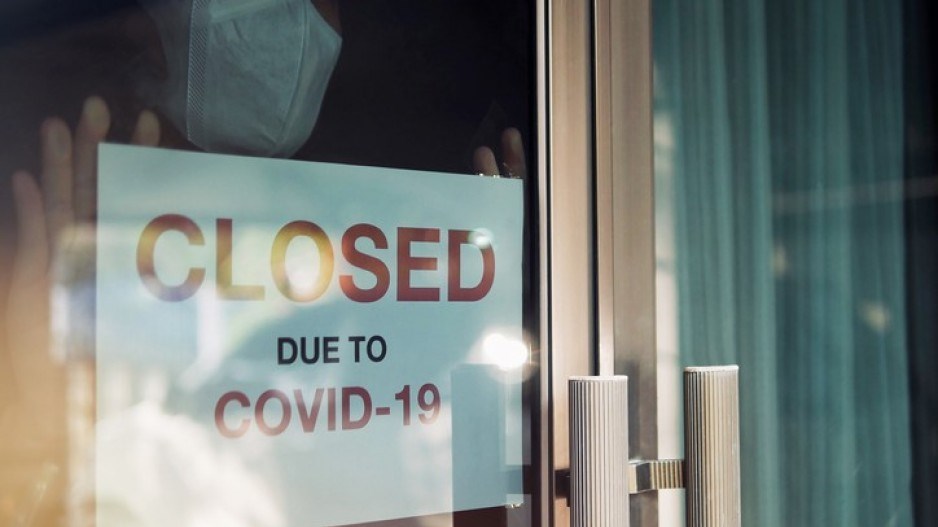One in four businesses in Greater Â鶹´«Ã½Ó³»does not expect to survive more than 12 months unless things change, a recent Greater Â鶹´«Ã½Ó³»Board of Trade (GVBOT) survey reveals.
Overall, less than half of all businesses in the region – 40 per cent – even expect to return to regular operations in the wake of the COVID-19 pandemic.
Out of those that return, 17 per cent have been effected in layoffs and reduced employee hours, reported businesses surveyed by the GVBOT in partnership with the Mustel Group.
According to the findings, a total of 150,000 Greater Â鶹´«Ã½Ó³»jobs have been cut since the announced start of the pandemic in mid-March – it’s no wonder why B.C.’s economic recovery plan has become an issue ahead of the Oct. 24 election.
“The stark reality that this survey lays bare is that many businesses in Greater Â鶹´«Ã½Ó³»are hanging by a thread,” said GVBOT president and CEO Bridgitte Anderson.
"The message that’s coming through loud and clear is that action needs to be taken to not only help them survive but also to mitigate the long-term economic challenges posed by this virus."Results of the business survey also found that reducing permitting processes (62 per cent), training the workforce (53 per cent), and growing BC’s tech ecosystem (50 per cent) as key areas of desired improvement.
Businesses also appear to be approaching an employee crisis,
More than half, 60 per cent of those who remain employed, have mental health concerns as a result of the public health crisis – 54 per cent are dealing with “loneliness and disconnection.”
Both factors have led to an overall 38 per cent reduction in employee productivity.
Ultimately, the GVBOT said its members, business owners, believe the most pressing measures the B.C. government should prioritize include:
- Creating better/more competitive conditions for investment (43 per cent)
- Reducing the administrative burden or making regulations more efficient (41 per cent)
- Financial support such as payroll/wage supports, providing capital or reducing taxes and fees (39 per cent)
- Supporting sectors such as tourism and travel that are positive economic multipliers for the region (38 per cent)
- Reduced fees (33 per cent), eliminating PST (32 per cent), and cutting commercial property taxes (30 per cent)






